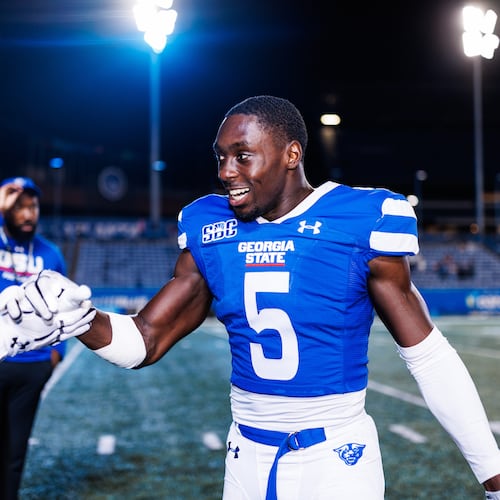Georgia Tech coach Paul Johnson spoke with media Thursday morning about his decision to step down as coach of the Yellow Jackets after 11 seasons. Some of the highlights.
On leaving
Johnson said that “you just get tired” from the demands of the job. In fact, Johnson said that, had it not been for the hire of athletic director Todd Stansbury after Mike Bobinski departed for Purdue in 2016, he might have retired then.
“To be honest with you, truthfully, had Todd not show up, I was ready to do this before he came,” Johnson said. “Because it wasn’t much fun. It was drudgery. I think that Todd came in, he understands what needs to happen.”
He described this season, in which Tech began 1-3 but rallied by winning six of the next seven, as an uphill climb. But with the Jackets finishing strong, and his daughter Kaitlyn beginning her career as a professional opera singer, “it just seemed like the right time.”
A comeback?
Johnson is clearly leaving the door open for a possible return. He said that, after 40 years of coaching, he needed a break.
“I think I’m still young enough that I’ll take a break and see if it fits and see if it’s what I want,” he said. “And if not, hopefully the body of work that I’ve had over the last 40 years, if I decide to do it again, I’ll get back in it somewhere else.”
Johnson said he also received a number of inquiries about other opportunities after news broke of his decision.
“I may get out there and go, ‘Man, why didn’t I do this five years ago? Or I may be out there and go, ‘I really miss (football),’” Johnson said.
Timing
The recruiting calendar gave Johnson impetus to make a decision. The early signing period begins December 19, and assistant coaches are on the road for recruiting, including visits with the 15 players who have committed to be a part of the 2019 class.
Johnson said that he didn’t want to be in a position of sitting across from a commit and his family and be asked how long he intended to be coach if he already knew he was stepping down. The sooner a new coach is hired, also, the sooner he can communicate with the 15 players committed, some of whom may not fit the style of offense or defense he plans to use.
“I think they’re good players, but it’ll be up to the coach and Todd with what they want to do with them,” Johnson said. “It gives them opportunity, if the guy doesn’t want them, to do something with early visits.”
Telling the team
Johnson said that informing the team of his decision was “the toughest thing. It just is. I think the two hardest things that I’ve probably ever done in my life was when I left Navy and then (Wednesday). It’s just tough. It’s emotional.”
Stansbury said that he has been in a lot of team meetings where coaches had to tell their players that they were leaving, “and I can honestly say I’ve never been in a team meeting like the one I was in (Wednesday). Very emotional. You could definitely see the bond between head coach and his players. And I think that when the team at the end gave coach Johnson a standing ovation, I think that’s when it said it all.”
On his tenure
Johnson said that “history will be the judge” of his time at Tech and coaching in general. He invoked a talking point he sometimes refers to that some Tech fans are subject to “revisionist history” about how strong the team had been in the past and joked that “now I’ll be part of that.”
He said he’ll stand on his record – finishing first or second in the Coastal Division seven times in 11 years, playing in three ACC championship games and two Orange Bowls. At Georgia Southern, he won two Division I-AA national championships and five Commander-in-Chief trophies at Navy.
“It’s been a good run, that’s what I’ll say,” he said. “In my mind, I’m satisfied with it.”
About the Author
Keep Reading
The Latest
Featured

